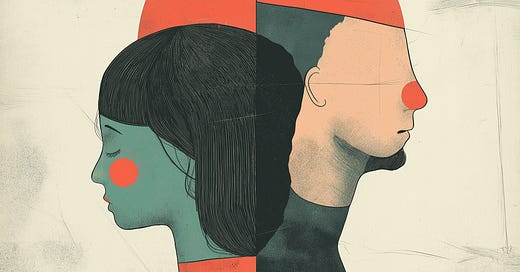The Epidemic of Misery: How a Culture of Dissatisfaction is Stealing Our Joy
In the years following the death of George Floyd, a profound shift in emotional expression has taken root in many circles, particularly among those who lean left politically. Conversations once filled with casual optimism or lighthearted banter now seem weighed down by a default state of dissatisfaction, as though expressing joy is no longer a valid or appropriate response to the world.
This phenomenon is not limited to political discourse; it permeates daily interactions. Ask someone, “How are you doing?” and too often, the answer is some variation of exhaustion, despair, or frustration with the state of the world. It's as if expressing anything other than discontent is perceived as indifference or ignorance to suffering. But is this relentless negativity truly the best way to engage with the world? More importantly, what is it doing to our collective psyche?
The Trap of Permanent Outrage
To be clear, there are valid reasons to feel anger, sadness, and frustration. The world is far from perfect, and injustice persists. But where does this leave us if those emotions become the default, rather than temporary responses to real issues?
When anger and dissatisfaction become permanent states of being, they cease to be useful tools for change and instead become a heavy burden. It is one thing to be aware of injustice and work to correct it; it is another to live in a constant state of despair, where joy is seen as betrayal and gratitude as naïveté. This mindset breeds cynicism, nihilism, and eventually, apathy—precisely the opposite of what a meaningful, engaged life should look like.
The Need for Gratitude and Perspective
One of the greatest counterbalances to despair is gratitude. And yet, in certain social and political circles, gratitude is often dismissed as a privilege or as an act of ignoring suffering. This is a deeply flawed view. Gratitude does not mean denying hardship—it means choosing to acknowledge the good alongside the bad.
For much of human history, life was marked by hunger, disease, and violence in ways that are nearly unimaginable today. Our ancestors would have marveled at the abundance, security, and opportunity available to even the average person in the modern West. And yet, rather than being grateful for these blessings and working to preserve them, many have fallen into a culture of dissatisfaction that fixates on every imperfection as proof that things are fundamentally broken.
This perspective is not just harmful—it’s counterproductive. People who believe the world is irredeemably unjust are less likely to take meaningful action to improve it. A sense of hopelessness breeds inaction, and inaction ensures that nothing changes.
The Case for Choosing Joy
Choosing to cultivate joy is not an act of ignoring reality—it is an act of defiance against despair. Joy fuels resilience. It keeps people engaged in the long, often difficult work of making the world better. It builds relationships, strengthens communities, and creates momentum for positive change.
A joyful person is not someone who refuses to see suffering, but someone who refuses to be paralyzed by it. They recognize the responsibility to act while also embracing the gift of existence. They see that love, laughter, and gratitude are not signs of ignorance but essential ingredients for a life well-lived.
Breaking Free from the Misery Mindset
To reclaim joy, we must first recognize the ways in which we have been conditioned to default to misery. Social media thrives on outrage. Political movements often prioritize fear over hope. Cultural conversations frequently frame everything through the lens of oppression and injustice, leaving little room for appreciation of progress.
It is time to reject this framing. A person can care deeply about justice and still find joy in life. A society can acknowledge its flaws while still celebrating its successes. An individual can fight for change while also embracing gratitude for what is good.
The world is not perfect, but it has never been. The question is not whether there is suffering—there always will be. The question is how we choose to respond. Do we surrender to perpetual misery, or do we find a way to move forward with both awareness and hope?
The answer, as always, is a choice. And choosing joy is not just an option—it is a responsibility.


